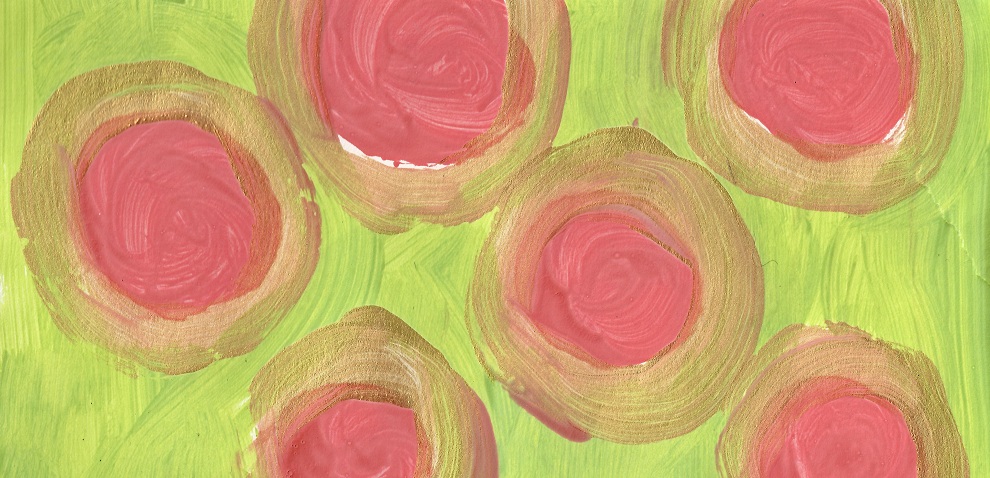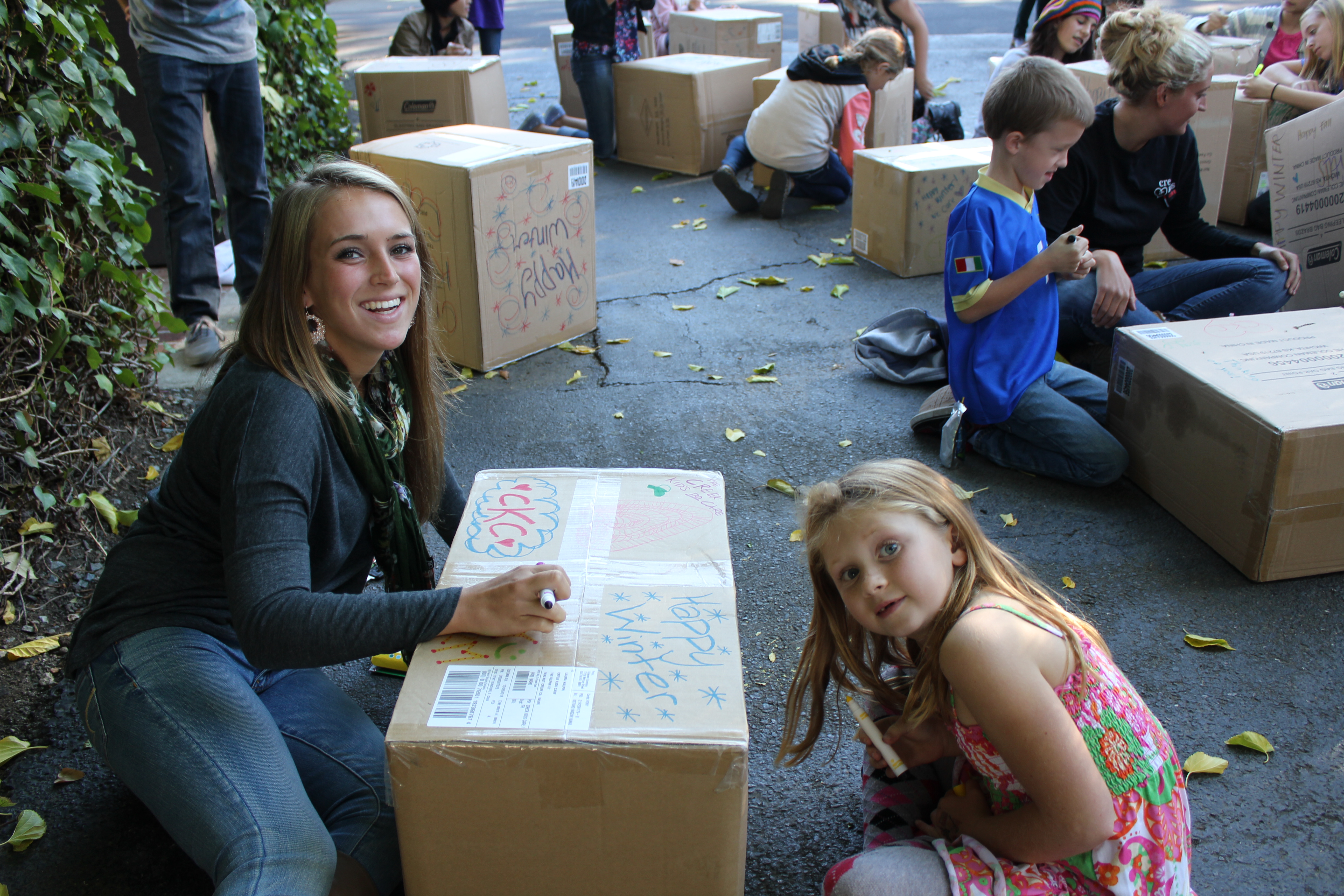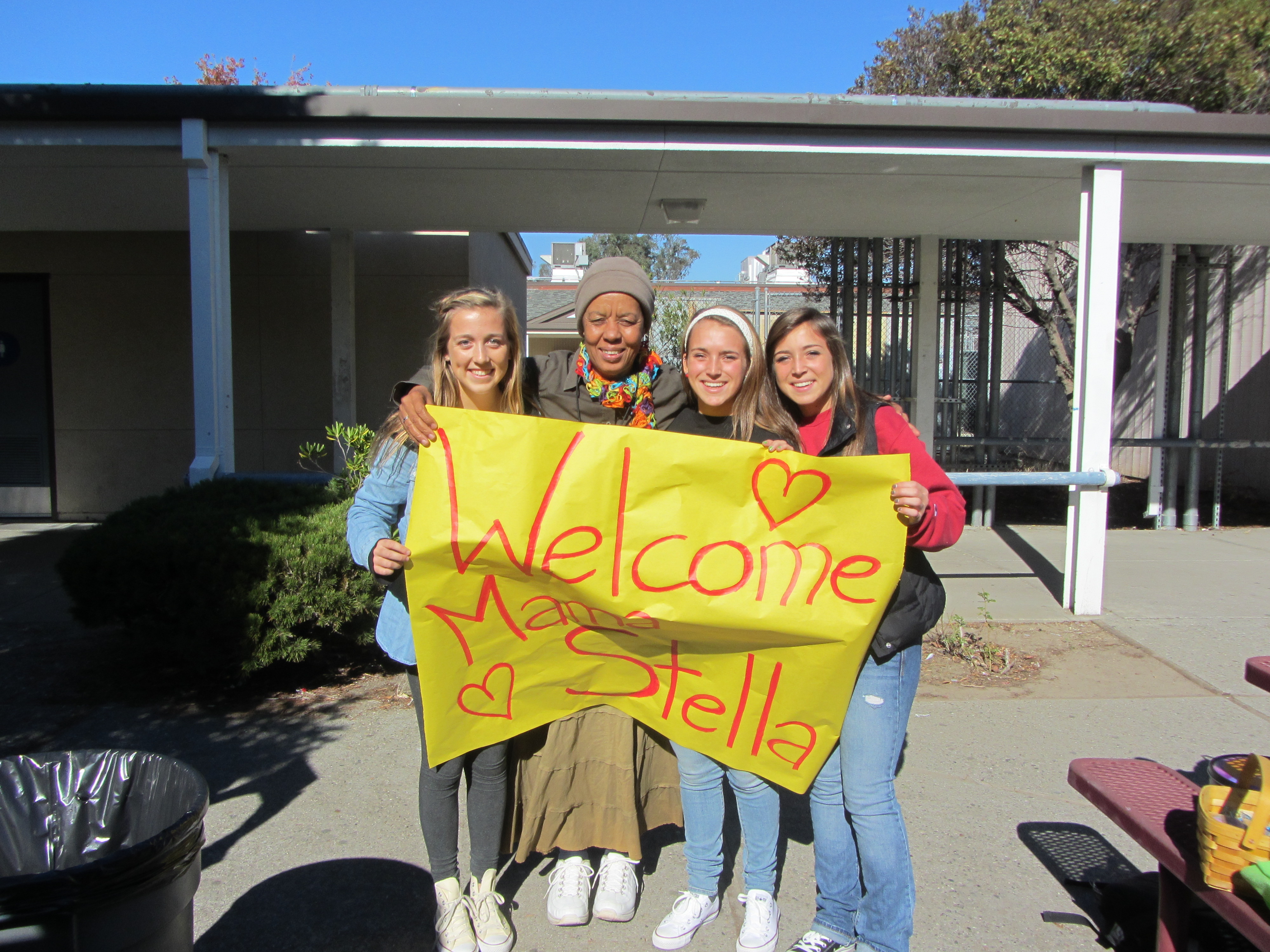
We do not realize often enough that we are dependent on one another; at the simplest material
level, we are all interdependent for our daily needs, and in this way we owe a debt to all beings.
— Kalu Rinpoche
Projects
One of the goals of Creek Kids Care is to make giving tangible and relationship-based — we don’t want to merely fire off a check to a huge organization. That’s why we work with organizations that are small, where we can develop relationships and have direct contact. Even though our goal is to have a positive impact on the world, we realize that by virtue of reaching out to different people and groups in need, we benefit, too. We learn, we grow, and we are humbled as a result of our relationships with others in our local and global communities.
Although our work benefits a lot of different organizations, our primary relationships are with Trinity Center of Walnut Creek and Mother of Peace Community in Mutoku, Zimbabwe.
 Trinity Center
Trinity Center
Trinity Center (formerly Fresh Start) provides a safe and accepting refuge two days a week for our homeless community members and working poor. At Trinity Center, a Trinity Center member will find breakfast and a hot lunch. One can use the laundry and shower facilities. The center also offers mail service, access to telephones, clothing and toiletries, a food pantry, job postings, on-site counselors, and advocacy for social services.
Perhaps the most important feature Trinity Center offers is a place for people without homes to gather in community. We adore our friends at Trinity Center and value them as members of our Walnut Creek community.
Our Trinity Center projects:
Sleeping Bags, Tents, and Tarps: Every fall since CKC began in 2004, the Creek Kids have purchased sleeping bags, tents, and tarps for our friends at Trinity Center. Susan Prather, the founder of Fresh Start (now Trinity Center), reminded us when she was alive that by supplying these resources, people stay warmer through the cold and wet winter nights. Ultimately, these supplies help save lives. Before we box the sleeping bags, tents, and tarps to deliver to members of Trinity Center, we decorate the cartons with our warmest wishes.
Holiday Angel Project: For the past six years, Creek Kids have participated in the Holiday Angel Project, showering Trinity Center members with gifts. Members submit their wish lists, and then Creek Kids, their families, and individuals shower them with gifts. Some practical — new boots, a camping stove, a bike helmet, or gas card. Some fun — a skateboard, Frisbee golf discs, even musical instruments.
Breakfasts all year: Each month, Creek Kids donate money to cover the cost of breakfast two days a week for Trinity Center members. We are proud to be able to do this.
Drives: Our Creek Kids school groups organize drives throughout the year to meet the needs of Trinity Center members. We’ve done sock and undies drives, protein and water drives, toiletry drives, and lots of winter clothing drives.
Our special relationship with Mother of Peace Community began in 2012 when we heard Mama Stella, one of the directors of MOPC, speak at a church in the Bay Area. Since then, she has come to visit the Bay Area and included a stop at two of the Creek Kids school clubs where we were fortunate to get to know her. It was very powerful to hear the story of how MOPC came to be, and how it makes such an amazing difference in the lives of 127 orphans, whose ages range from toddlers to teens.
 MOPC is 100 miles east of Harare, toward the border with Mozambique. There is a tar road until you reach the settlement of Mutoko. Three more miles on a dirt road leads you through the bush and past an old leprosy colony until you finally arrive at the orphanage. As you travel, the countryside becomes increasingly less fertile due to low rainfall, and the landscape changes to one of rocky, boulder-strewn mountains.
MOPC is 100 miles east of Harare, toward the border with Mozambique. There is a tar road until you reach the settlement of Mutoko. Three more miles on a dirt road leads you through the bush and past an old leprosy colony until you finally arrive at the orphanage. As you travel, the countryside becomes increasingly less fertile due to low rainfall, and the landscape changes to one of rocky, boulder-strewn mountains.
MOPC was established in 1994 in response to the HIV/AIDS pandemic. The orphanage provides shelter, education, and healthcare in a loving family atmosphere.
The children and workers at MOPC engage in a variety of projects and activities aimed at self-reliance and sustainability. The farm feeds the community and generates income. Crops, including maize, wheat, ground nuts, and vegetables, are grown, and chickens, cows, goats, and pigs are raised. Products, such as eggs and piglets, are sold locally. The farm also provides employment for local residents.

